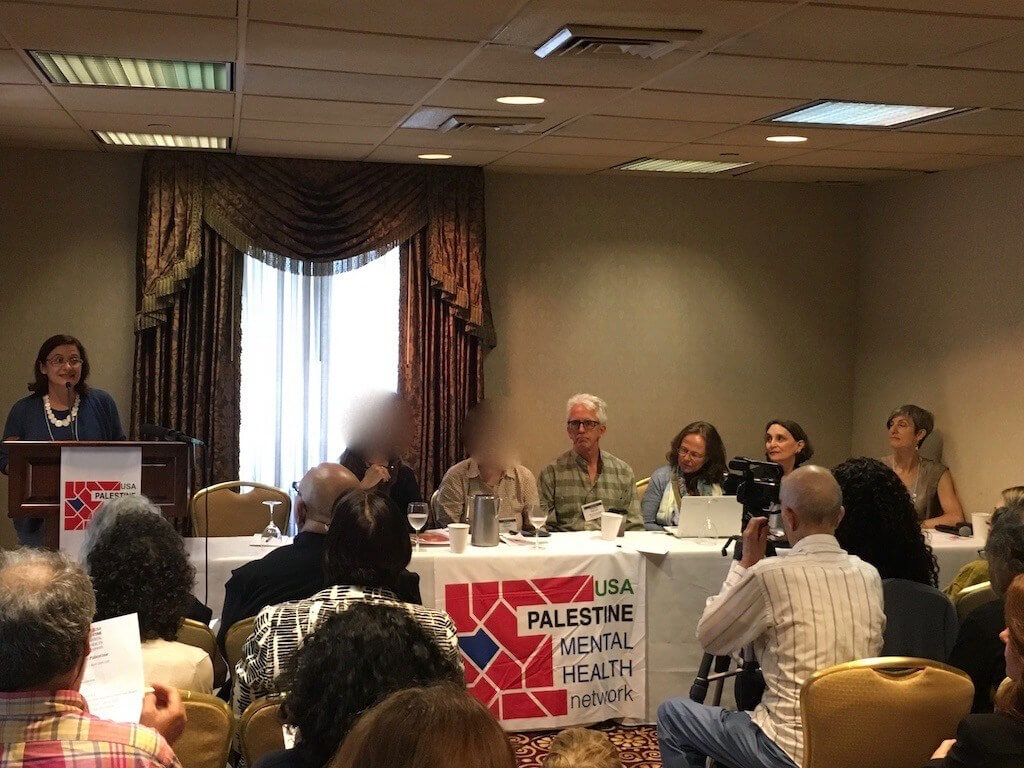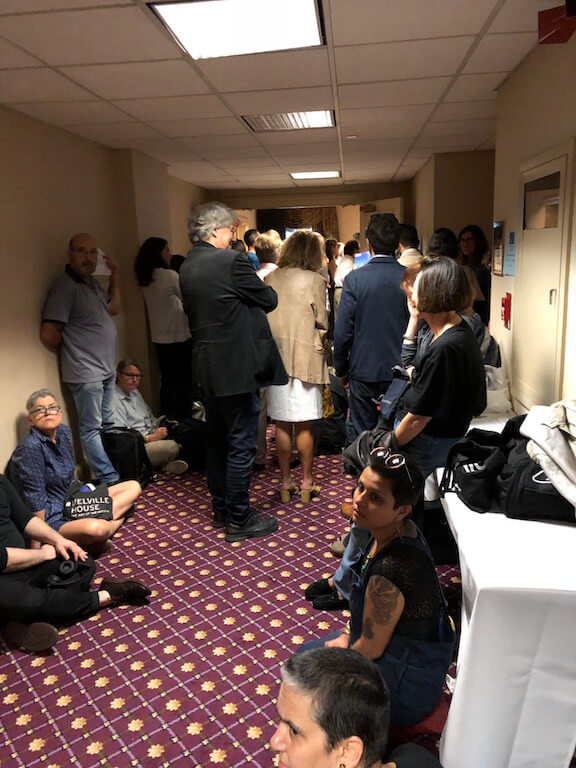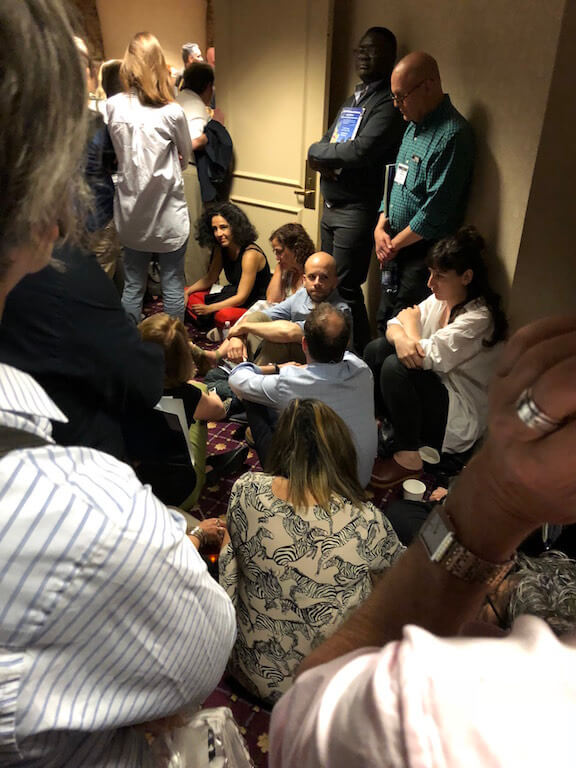The USA-Palestine Mental Health Network hosted a special forum for mental health workers, “Voices on Palestine,” in New York City on Friday, June 15th, 2018.

The USA-Palestine Mental Health Network hosted 2 ½ hour lunchtime conference, “Voices on Palestine,” at the Roosevelt Hotel in New York City scheduled during the four-day annual meeting of the International Association for Relational Psychoanalysis and Psychotherapy (IARPP). The “Voices” event was part of the ongoing protest against IARPP’s plan to hold its 2019 meeting in Tel Aviv; our website details the petition signed by 1400 mental health workers and professionals calling for a reconsideration of the plan as well as many other aspects of this protest since December 2017.
The “Voices” event was free and open to all mental health workers. Many who attended were IARPP members, including some who had withdrawn their own panel presentations from the current IARPP meeting in protest, some who had withdrawn from IARPP altogether, and other IARPP members who have been vocal in their opposition to meeting in Israel next year. Gratifyingly, there were present as well a good number of new and youthful faces–mental health workers unrelated to IARPP who had responded to social media and word-of-mouth invitation. A total of approximately 150 participants overwhelmed the seating in the hotel’s modestly sized conference room and flooded the adjacent hallway where they stood or sat on the floor. About half a dozen members of the IARPP Board of Directors, including the current president Steven Kuchuck DSW, were also present.
Introduction of the panel was made by Steering Committee member Rebecca Fadil LCSW. The panel consisted of a series of papers by L X LCSW, Buried Neck Deep; Jane X LCSW, “Working with Jahalin Bedouins;” E. PsyD, “Gaza Has No Throat (the title quotes a poem by Mahmoud Darwish); and Steve Benson PhD, It Gets Hard Talking About Palestine. Not announced on the program but also presented was a detailed report on the mental health situation in Gaza which had been received only the day before from Sami Owaida MD, a child psychiatrist living and working in Gaza. The panel was closed by a commentary by Steering Committee member Elizabeth Berger MD. An overarching theme was the disparity in power in both popular and scholarly contexts between the prevailing pro-Israeli narrative and the often forcibly silenced Palestinian narrative, and the resultant difficulty bringing to light the human rights abuses perpetrated by the state of Israel.
An hour-long wide-ranging discussion from the floor ensued, moderated by Steering Committee member Christine Schmidt LCSW. The discussion was marked by considerable passion, especially so during those times when members of the IARPP Board attempted to argue in defense of the organization’s various actions—when others present offered denunciations of IARPP’s bad faith in heated terms. Outrage was expressed that IARPP had contacted the hotel to raise fears of “disruption” of its conference by the USA-P MHN; it was noted that a Homeland Security team was posted outside of the hotel. IARPP’s stated intention to “do what we can” to bring Palestinian clinicians to its Tel Aviv conference was particularly criticized as utterly out-of-touch with the realities of checkpoints, restrictions on human movement, targeting of community leaders, and daily harassment and humiliation of Palestinians.
Forty tote bags emblazoned with the USA-Palestine Mental Health Network name and logo were sold, so that attendees carrying these bags projected a visual statement of our presence. The impact of our message was expressed in multiple workshops, in the membership meeting, and at the closing Plenary.
The Steering Committee wishes to thank everyone involved in our greater community for their gracious support, advice, interest, and commitment to making “Voices” an opportunity for truly genuine dialogue.


